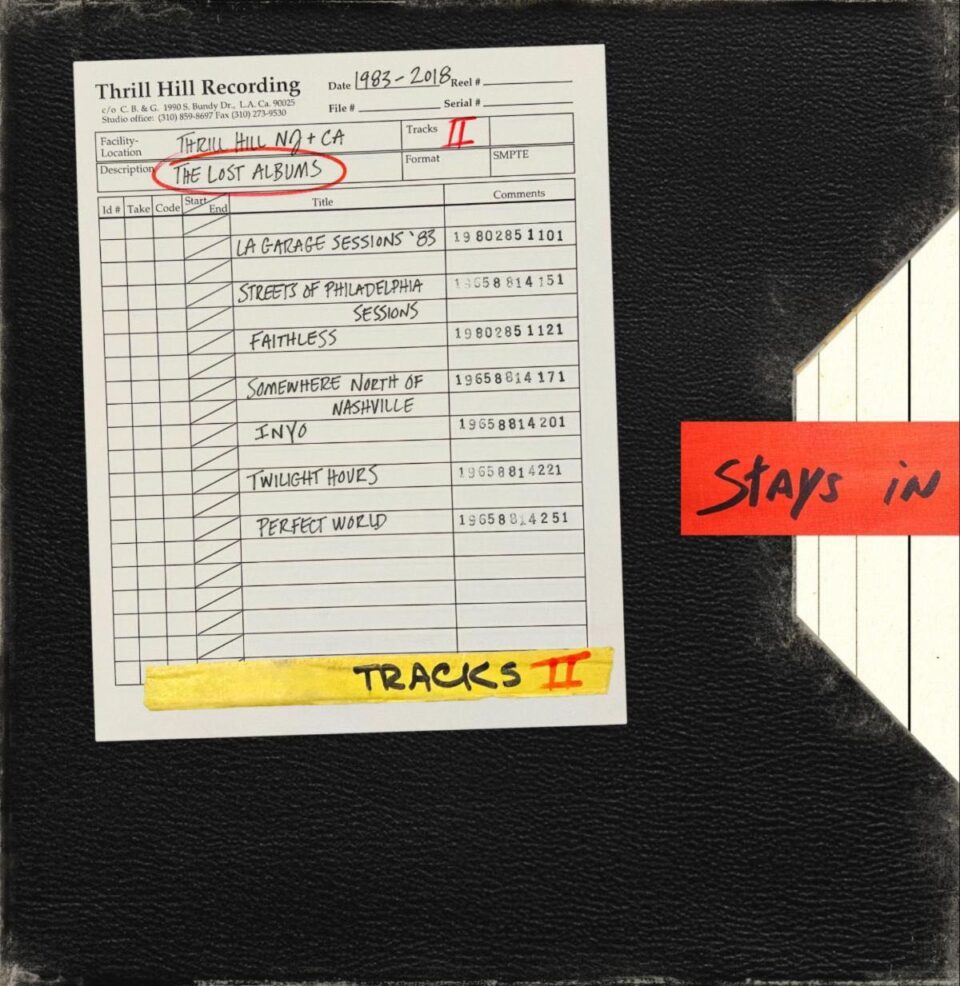If you’re still spinning Priests’ Seduction of Kansas two months after its release date, but favor Dodie Bellamy’s queer takes on classic vampire literature over Thomas Frank’s critiques of conservative America, man, is French Vanilla’s How Am I Not Myself? an album for you. Both a party and a disco, the second LP from the Los Angeles post-punk-via-new-wave personalities feels like an unofficial sequel to the recent Priests release in the same way Bellamy’s Letters of Mina Harker used Dracula as a jumping-off point, while remaining truly unique—and, unrelatedly, features way more sax.
While there’s plenty to unpack in the musical density of each of the Danger Collective–released album’s ten tracks, we got the lowdown from the band on the story behind the lyrical content for each individual track, covering a wide variety of topics from the intricacies of relationships, to an inability to expose misogyny, to a Cronenbergian lust for technology. Stream the LP—out today—in full below, and read along to the band’s commentary. You can also order the record here.
1. “Real or Not”
This is a hopeful song about seizing opportunities to do or become something. The lyrics are about looking in the mirror and wondering if you have the courage to give up the comfort and warmth of your ignorance on the path to self-knowledge. When we were recording the album, we all thought this would be the lead single. It didn’t turn out that way, but we wanted to give it special placement as the first track. It’s a great, uplifting way to ease into the album.
2. “Lost Power”
This song is about Sally’s experience in a long-term straight relationship that ultimately engendered a sense of lost self in her. Falling for another person made her feel “sick” because on the surface there was nothing wrong with her relationship. But leaving it eventually made her realize she had ignored facets of her identity for the sake of comfort, convenience, and the desire to live up to society’s expectations.
3. “All the Time”
At a basic level, this song is about the feeling of having a new crush! We all know that feeling, and there’s nothing quite like the excitement of it. Sally wrote these lyrics in reference to falling hard for someone while we were on tour, all the while trying to hide it. This was actually the last song we wrote for the album, and it wasn’t finished going into the studio (which is extra stressful because we had so little time in there). We focused on giving it a traditional pop structure and a strong chorus because we really wanted the fun of the subject matter to come through.
4. “Friendly Fire”
This song is about a desire to be invaded by technology—being “turned on” by cameras, surveillance lenses, and the idea that someone’s always watching. This topic is discussed at length in Avital Ronell’s Complaint: Grievance Among Friends, which served as an inspiration to Sally for the lyrics. Musically, this stands out as a favorite for several band members, with the guitar mini-solo serving as a high point.
5. “Protective”
Feeling safe enough to put yourself out there, before falling into patterns of fear and self-doubt. Frustrated dialogue and inadequate communication. Women “build walls” to protect themselves against emotional and physical attack.
6. “Suddenly”
On the surface, “Suddenly” is an energetic and danceable song, but its upbeat nature belies lyrical content that both celebrates and questions nightlife. We go out to be social, overzealously attempting to connect with others, only to wind up in isolation and sometimes substance overuse. There is an internal struggle of being tantalized by the spotlight; wanting to perform, and a simultaneous urge to hibernate from society. There’s a feeling of everyone watching you, and the fear of being misinterpreted—as if going out in itself were a performance, even if no one is actually paying attention. All these feelings are amplified for a performer, including the feelings of emptiness after it’s over. Sean Cook, who we worked with to record the album, helped us cull unnecessary musical phrases and refine it to arguably the most danceable track. The saxophone solo is definitely a highlight for the album!
7. “Joan of Marc”
This track references The Letters of Mina Harker, in which author Dodie Bellamy likens the character of Mina to Joan of Arc for her victories of sexual conquest. “Quincy would come in my arms and then start weeping—he made me feel like his salvation the flames they followed Joan of Arc as she came riding through the dark—and I am salvation…”
“The flames they followed Joan of Arc as she came riding through the dark” is also a line from a Leonard Cohen song that is dissected and repurposed in Bellamy’s novel. The song interprets this gesture as reclaiming and defiling Joan of Arc’s “virginal” persona, as well as a dismantling of masculine ownership over feminine iconography.
8. “Bromosapien”
Ali wrote these lyrics about a male coworker who was consistently aggressive toward her and other female coworkers in one-on-one situations, away from the scrutiny of others. It’s about the feeling of knowing someone is a misogynist but being unable to prove it, and the constant belittlement and microaggressions received from them.
9. “Move Along, Move Ahead”
This song is also inspired by The Letters of Mina Harker. The intro lyrics, “I look back at her, the way the dead watch the living, the way you watch me,” are drawn from Bellamy’s book, a conceptual sequel to Bram Stoker’s Dracula where prim “assistant school mistress” Mina is recast in the body of Dodie Bellamy, a polyamorous lesbian writer living in San Francisco in the 1980s. This song creates space for an imagined identity, and nourishes our desire to become someone else. Surprisingly, the one musical reference we discussed repeatedly while writing this song was Venga Boys; maybe that didn’t come through in end?
10. “Sensitive (Not Too Sensitive)”
Written while Sally was working at a gallery she loathed, the song is a consideration of what we sacrifice for the sake of our jobs. It imagines the possibility of a life beyond the degradation and repetitive mundanity of wage labor.









